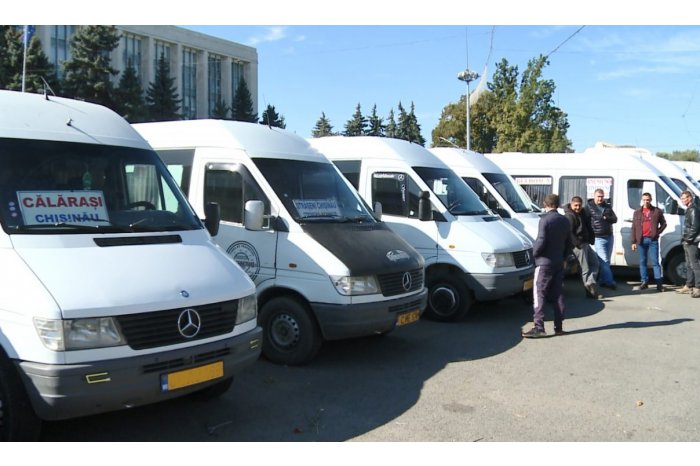Moldovan infrastructure and regional development minister reacts to carriers' demands
14:46 | 09.11.2023 Category: Economic
Chisinau, 9 November /MOLDPRES/ - The carriers who staged a protest today have a single proposal – everything should remain as it has been. It should be clear. It won’t do. Infrastructure and Regional Development Minister Andrei Spinu made statements to this effect in a reaction to the carriers’ protest, organized on the Great National Assembly Square (PMAN) today.
„They want to daily ask drivers for money for the fact that they give them paper/authorization to move. They do not want to invest in more modern transport. They do not want to observe the schedule of carrying out the routes for which they have authorization. They do not want to give tickets to passengers. They do not want to allow the opening of new routes, even where people and the local public administration demand this. It should be clear. It won’t do,’’ the official writes.
Dozens of carriers, discontented with the new Code of Transports, staged a protest in the central of the Moldovan capital today. The Employers’ Association of Motor Transport Operators (APOTA) says that some of the provisions of the draft on amendment of the Code of Transports run counter the European legislation. ‘’The situation in the transports field is catastrophic; the branch still has not recovered after the pandemic and there are villages in Moldova which do not have transport routes to district centres or Chisinau,’’ the head of the APOTA Council Oleg Alexa, said.
On 8 November, the cabinet of ministers approved amendments to more normative acts in the road transport sector. According to Andrei Spinu, amendments to the Code of Road Transport will be promoted, as they provide people with more qualitative, more modern transport.
„I want to remind just several important amendments: we remove the hour limitings at the level of international transport and shorten the interval up to 15 minutes for the routes nationally; we help the mayoralties and mayors to provide the residents with transport. The local public administrations will be able to intervene in the process of opening and changing new regular routes; we reduce the bureaucracy. The road transport operators can say ‘’good-bye’’ to the driver’s logbook, as it was excluded from the list of documents of strict record. And to reduce even more the bureaucracy, a string of acts which already exist in the information systems of the National Motor Transport Agency (information on technical inspection, certificates of professional skills) will be excluded from the lists of documents needed onboard; we remove the contradictions existing as to the term and way of issuance of authorizations. After the expiration of the term of the authorization, which lasts 8 years, the motor transport operators will be able to work another four years – if they meet the criteria pre-established, which will be regulated by the government,’’ the infrastructure and regional development minister also said.

